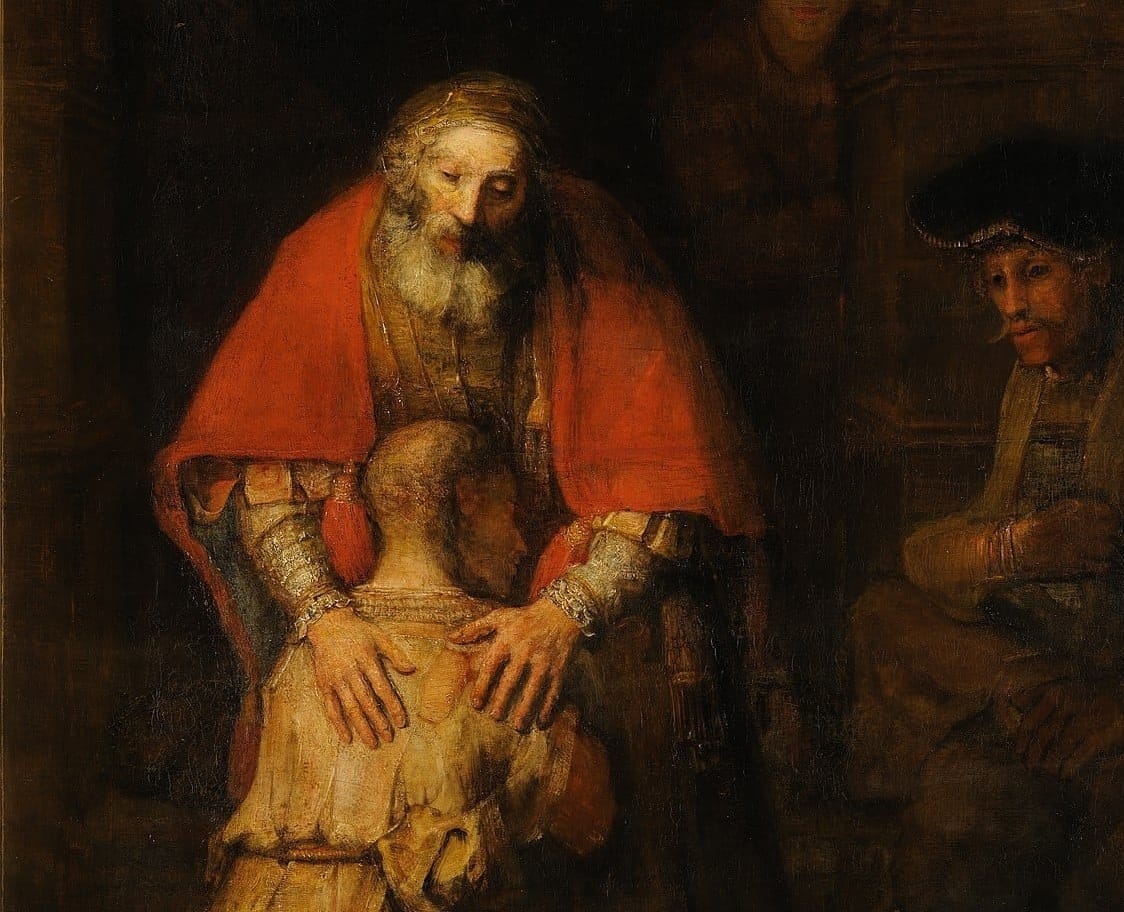Un-Saying and 6 Psychological Tools to Deprogram Tribal Rage
In an age when conviction performs louder than truth, The Art of Un-saying asks how we might recover conscience amid the noise. Drawing on Haidt and Solzhenitsyn, it offers six psychological practices to deprogram tribal rage and rediscover moral freedom.

“The line dividing good and evil cuts through the heart of every human being.”
— Aleksandr Solzhenitsyn, The Gulag Archipelago (1973)
In every generation, there are words that lose their innocence. Dialogue is one of them. Once the emblem of democracy, it has come to sound almost naïve—an artifact from an earlier time when people still believed that persuasion could bridge differences. Today, disagreement feels existential. To dissent is to betray; to listen, to capitulate.
A new kind of moral tribalism has taken hold in the past few decades, in which politics becomes an identity rather than an instrument. According to the Pew Research Center’s 2025 report on American polarization, 71 percent of respondents now describe members of the opposing party as “immoral” or “a threat to the nation’s well-being.” Only 14 percent say they have a close friend who disagrees with their political views. These are the metrics of estrangement.
These are the metrics of estrangement.
Jonathan Haidt and Aleksandr Solzhenitsyn describe, from opposite disciplines, the two halves of the same moral crisis. Haidt’s psychology explains why we fracture; Solzhenitsyn’s ethics shows how we might heal.
Drawing on decades of moral psychology, Haidt dismantles reason as a neutral guide to truth. Human reasoning, he argues, is not a “searchlight” sweeping reality for facts but a “flashlight” illuminating what emotion already approves. “We are emotional dogs,” he writes, “with rational tails that wag to justify what we already feel.” Our intellect does not lead moral judgment—it rationalizes it. Political conflict, then, is not a deviation from rational discourse but the ecological niche in which reasoning naturally thrives: we evolved to argue as tribes, not as philosophers. Argument binds the in-group and blinds it to anything beyond.
Political conflict, then, is not a deviation from rational discourse but the ecological niche in which reasoning naturally thrives: we evolved to argue as tribes, not as philosophers.
Where Haidt diagnoses the cognitive reflex, Solzhenitsyn prescribes the spiritual counter-reflex. In Live Not by Lies (1974), composed on the eve of his exile, Solzhenitsyn proposed a rebellion so quiet it barely looked like resistance: simply refuse to utter what you know to be false. “Let the lie come into the world,” he wrote, “let it even triumph—but not through me.” Truth, in his view, begins with the moral pause—the refusal to be an instrument of collective deceit.
Transposed to our own age, the lie is no longer an imposed ideology but a reflex of conformity, the automation of moral speech within tribes. We lie whenever we surrender conscience to belonging.
Transposed to our own age, the lie is no longer an imposed ideology but a reflex of conformity, the automation of moral speech within tribes. We lie whenever we surrender conscience to belonging. To recover moral independence is therefore to master what might be called the art of un-saying: the discipline of interrupting reaction, loosening identity, and restoring the sovereignty of conscience over the crowd.
To recover moral independence is therefore to master what might be called the art of un-saying: the discipline of interrupting reaction, loosening identity, and restoring the sovereignty of conscience over the crowd.
What follows are six practices—rooted in contemporary psychology and ancient moral insight—that can help deprogram the reflexes of tribal rage.
I. The Pause of Conscience
Anger travels faster than thought. Social neuroscientists describe a “limbic override” that precedes conscious reasoning by roughly 200 milliseconds: we feel moral disgust before we even know why. Haidt calls these impulses “moral intuitions”—gut reactions that precede and guide our reasoning.
To interrupt this cascade is to reclaim moral agency. A simple exercise: when you feel a surge of political anger—reading a post, hearing a name—pause for five seconds. Observe the physical cues: the tightening chest, the shallow breath, the constricted focus. Name them silently: anger, fear, defensiveness. Research from UCLA’s Mindful Awareness Research Center shows that affect labeling—putting words to emotions—activates the prefrontal cortex and calms the amygdala.
This is not self-censorship; it is self-possession. Solzhenitsyn’s injunction “not through me” begins here, in the physiological space between stimulus and speech. To pause is to make room for conscience.
II. Deliberate Exposure Therapy
We live in moral monocultures. Pew’s longitudinal data show that Americans are now more geographically, educationally, and socially sorted by ideology than at any point since 1972. Algorithms complete the enclosure, curating feeds that mirror our convictions back to us in an endless hall of affirmation.
The only known remedy is deliberate contact with the other. Psychologist Gordon Allport’s contact hypothesis (1954) remains the most empirically supported tool for reducing prejudice: sustained, equal-status interaction across group lines.
This can take humble forms:
- Attend a community forum hosted by an opposing political organization.
- Read an editorial you expect to reject, and note—not its errors—but what human need animates it.
- Share a meal with someone you distrust politically and commit, for that hour, to curiosity rather than rebuttal.
These encounters act as a controlled exposure—a psychological “vaccine” against cognitive rigidity. They re-train the mind to tolerate ambiguity, which, as philosopher Isaiah Berlin observed, is the price of moral maturity. “To choose, to sacrifice,” he wrote, “is to live in a tragic world.”
In practice, cross-aisle contact humanizes abstraction. Someone “far-right” becomes a neighbor with a cool pick-up truck; a “radical leftist lunatic,” a father who lost his job. Political disagreement, reframed through proximity, regains its proper scale.
III. The Inversion of Certainty
Haidt’s research into moral foundations revealed that conservatives and liberals emphasize different moral goods: conservatives weight loyalty, authority, and sanctity more heavily, while liberals prioritize care and fairness. Both are moral systems—coherent, sincere, incomplete. Yet each side experiences its own matrix as self-evident and the other’s as hypocrisy.
To de-program this bias, try the inversion exercise once a week. Take a policy or moral issue that provokes you and argue it from the opposite side, sincerely, without caricature. The point is not conversion but comprehension. Cognitive-behavioral therapy uses a similar technique called cognitive reappraisal, shown to reduce emotional reactivity and increase empathy. By articulating the logic of the other, we weaken the illusion of unilateral virtue.
This is also akin to what Aristotle described this capacity as phronesis—practical wisdom, the ability to deliberate well amid competing goods. Modern democracies die when citizens mistake their moral framework for moral reality. To invert one’s certainty is to recover the humility essential to deliberation.
IV. Confession over Performance
Social media has turned moral life into a stage. We do not just hold opinions; we perform them for an audience. The philosopher René Girard called this mimetic contagion: we borrow our passions from others, amplifying outrage to signal belonging.
The average American now spends more than two hours daily on social platforms optimized to reward outrage. Each “like” is a small biochemical ratification that our tribe approves. But as Haidt and Jean Twenge note in their 2024 Atlantic study, the algorithmic amplification of moral-emotional language increases engagement but correlates strongly with anxiety and social distrust.
The counter-practice is confession—not in the religious sense, but as an act of moral interiority. Before posting a judgment, ask: Is this a witness or a weapon?
A witness seeks to clarify conscience; a weapon seeks applause. To confess is to speak truthfully from one’s own experience without demanding assent. Solzhenitsyn’s moral courage lay not in denunciation but in testimony: he did not claim purity, only truth. Digital silence, chosen freely, can thus become a higher form of eloquence. “In the beginning was the Word,” writes the Gospel of John; but in an age of noise, perhaps the beginning of moral renewal is the withholding of the word.
V. Forgiveness as Cognitive Freedom
According to Hannah Arendt in The Human Condition (1958), the human capacity for forgiveness is a profound political and social power, essential for the continuation of human affairs. To understand its significance, Arendt contrasts it with vengeance, which in her view, is not a true "action" but a predictable and automatic re-action. It operates within a deterministic cycle: an offense occurs, and retaliation follows, which in turn provokes another retaliation. This creates an unending "chain of wrongdoing" from which no one can escape.
Forgiveness, by contrast, is what Arendt calls a "miracle." It is a true action because it does the one thing vengeance can never do: it begins something new. As Arendt writes, forgiveness is "the only reaction which does not merely re-act but acts anew and unexpectedly." This act breaks the deterministic chain of retaliation. It interrupts the predictable cycle with something surprising and uncoerced, restoring freedom and the possibility of a shared future. For this reason, Arendt sees forgiveness not as a matter of religious sentiment, but as a necessary secular faculty that allows human beings to free themselves from the burden of the past and continue to act together.
Arendt sees forgiveness not as a matter of religious sentiment, but as a necessary secular faculty that allows human beings to free themselves from the burden of the past and continue to act together.
In the political realm, forgiveness means decoupling disagreement from damnation. It means recognizing that opponents are not moral mutants but moral mirrors—reflecting our own capacity for blindness. Forgiveness restores complexity to persons flattened by ideology.
It means recognizing that opponents are not moral mutants but moral mirrors—reflecting our own capacity for blindness. Forgiveness restores complexity to persons flattened by ideology.
The hardest freedom, as explored in our earlier essay Forgiveness After Hurt, is precisely this: to refuse to let injury harden into identity.

VI. The Courage to Stay in the Room
The final practice of un-saying is endurance—the ability to remain present when dialogue becomes uncomfortable. This principle is validated by extensive research on bridging political divides. These studies reveal that the most effective interventions are not those that force agreement, but those that foster sustained engagement with different viewpoints, consistently leading to higher empathy and a reduced sense of partisan animosity. To stay in the room is to resist both flight and fury: to inhabit the tension between conviction and humility without collapsing into silence or outrage. It demands emotional regulation, intellectual patience, and moral curiosity—the willingness to listen not to agree, but to understand. This endurance is the civic analogue of Solzhenitsyn’s spiritual defiance: an inner act of freedom that chooses conscience over conformity, presence over purity.
In polarized times, the courage to stay is the rarest form of dissent. It affirms that coexistence is not the absence of conflict but the art of bearing difference without hatred—the quiet, daily labor that keeps democracy alive.
After exploring these 6 practices, Un-saying appears like a disposition—a spiritual psychology of freedom. It presupposes that conscience is a faculty of listening before it is an act of speaking. The dissident knows this intimately: speech has weight only when silence has depth.
The dissident knows this intimately: speech has weight only when silence has depth.
Solzhenitsyn’s rebellion was inward before it was political. He wrote in The Oak and the Calf (1975) that “violence can only be concealed by a lie, and the lie can only be maintained by violence.” The two feed each other. The same cycle operates in democratic polarization: verbal violence sustained by moral simplification.
The same cycle operates in democratic polarization: verbal violence sustained by moral simplification.
To un-say, therefore, is to break the inner link between simplification and aggression. It is a form of psychological de-radicalization—a moral rewiring that begins not with public discourse but with private honesty.
To un-say, therefore, is to break the inner link between simplification and aggression. It is a form of psychological de-radicalization—a moral rewiring that begins not with public discourse but with private honesty.
The theologian Dietrich Bonhoeffer, in his Letters and Papers from Prison 1942-53, reflected on how "stupidity" was born from the moral catastrophe he witnessed inside Nazi Germany. He tried to understand how ordinary, often educated citizens could become instruments of barbarism. His conclusion was unsettling: the problem was not ignorance but moral abdication. Stupidity, he wrote, was “a moral, not an intellectual defect”—a condition that arises when individuals relinquish their capacity for independent judgment and allow themselves to be absorbed by the collective will. Under the spell of ideology or mass suggestion, people cease to think for themselves; they merely echo the slogans of the time.
The “stupid” person, he observed, is often sincere and convinced, yet cut off from reality by the walls of conformity.
For Bonhoeffer, this kind of stupidity was more dangerous than malice because it masked itself as normality. The “stupid” person, he observed, is often sincere and convinced, yet cut off from reality by the walls of conformity. Persuasion fails because reasoning presupposes freedom, and freedom has already been surrendered. In our own age, the mechanism is no longer totalitarian terror but the quiet coercion of digital systems.
What Bonhoeffer saw as moral anesthesia under dictatorship now reappears as algorithmic stupor: the automation of attention and judgment. We react as programmed, reward what we are told to reward, and outsource discernment to the swarm. The result is not merely intellectual decay but the erosion of conscience itself—a civilization speaking in borrowed thoughts.
The practice of un-saying reclaims our discernment as human beings, the courage to hear before judging, to reflect before sharing, to doubt one’s own purity before denouncing another’s sin.
The five disciplines above—pause, exposure, inversion, confession, forgiveness—form what psychologists might call a counter-conditioning program for civic health. They do not erase conviction; they refine it. Affectively, they shift the emotional signature of politics from fear to curiosity, from contempt to complexity. Socially, they create the conditions for dialogue—not through institutional reform but through psychological self-governance.
Un-saying is thus the missing link between moral psychology and civic renewal—a personal act of disarmament in an age of weaponized words. It is the interior labor that precedes any credible call for reconciliation, the quiet work of conscience that makes politics possible again. A democracy, after all, rests not only on laws and institutions but on habits of soul: the willingness to speak truthfully, to listen humbly, to forgive freely. To practice un-saying is to maintain that bridge: to hold discord without hatred, conviction without contempt. It is the art of remaining human amid algorithms, moral amid tribes, truthful amid noise. “To live without lies is our most peaceful resistance,” wrote Solzhenitsyn. In our time, perhaps the call is gentler but no less urgent: To speak without rage, and to un-say what rage has taught us to repeat. ◳
Un-saying is thus the missing link between moral psychology and civic renewal—a personal act of disarmament in an age of weaponized words. It is the interior labor that precedes any credible call for reconciliation, the quiet work of conscience that makes politics possible again. A democracy, after all, rests not only on laws and institutions but on habits of soul: the willingness to speak truthfully, to listen humbly, to forgive freely.







